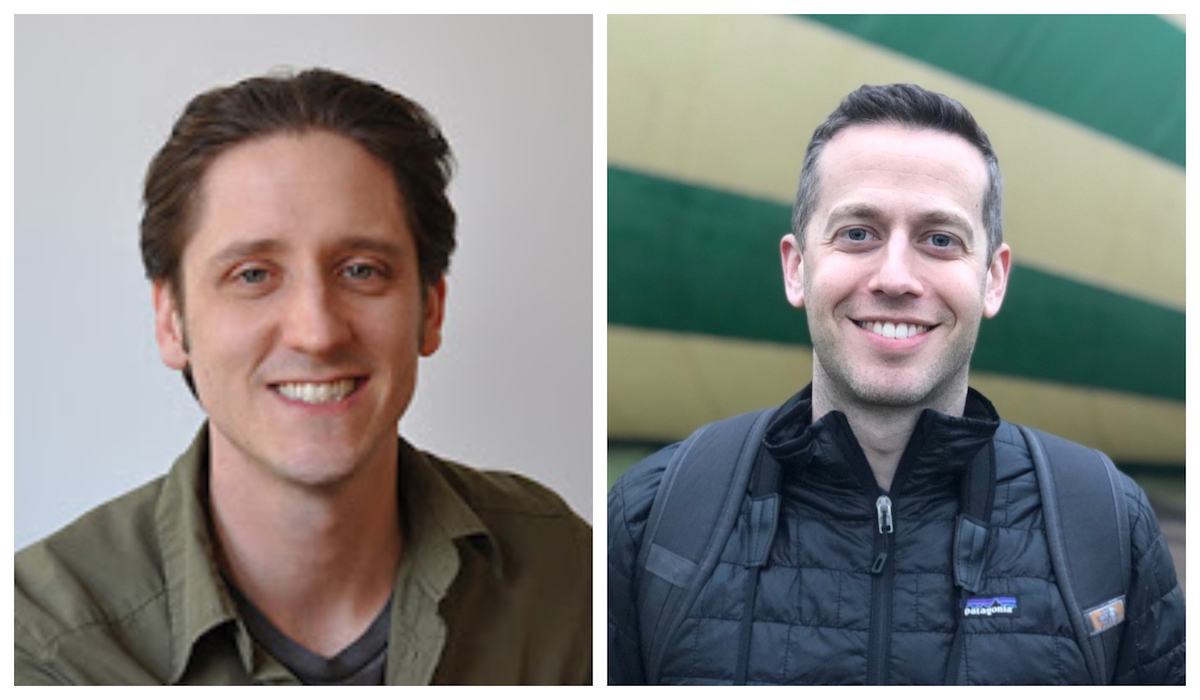When Philly technologists Jake Stein and Ben Garvey were building tech products throughout their careers at companies like Stitch, Adobe and RJMetrics, they’d run into the same tedious and time-consuming problems with legal negotiation in contracts.
Everyone was essentially signing the same contracts, but one NDA would vary wildly to the next, wasting precious time and requires legal resources not every company has. They imagined creating a contract acceleration platform to streamline negotiation, approval and closure so everyone in the software industry knows what to expect every time.
It was a concept the cofounders talked about many times before taking the leap with their new venture, Common Paper.
Stein left Talend, which in 2018 had acquired his second cofounded startup, Stitch, back in August. He began researching the idea in earnest last fall, and knew it was a project he wanted to work on with Garvey, he told Technical.ly. Stitch was a spinoff of analytics firm RJMetrics, which he’d started with Crossbeam’s Bob Moore; Garvey worked with them there as engineering manager.
“Ever since I worked with Ben at RJ[Metrics] I’ve tried recruiting him again. I’ve tried, I think, three or four times over the years, but he always politely rebuffed,” Stein said. “It wasn’t so much that I thought, ‘Who would be a good person to work with’ — it was more like, ‘Now maybe I can try again and convince Ben to work with me again.'”
Garvey said that while Stein’s efforts to recruit him over the years finally worked, he had a mission he was working on with Magento, which he joined when it acquired RJMetrics in 2016, and then Betterment, the fintech company where he helped establish a Philadelphia office over the last two years. But he was convinced the idea behind the new startup was a solution to a problem everyone in software has.
“Not only do they understand it,” Garvey said about the folks they’ve talked so far about Common Paper, “they usually start telling us horror stories of the project that got delayed for six weeks or died because they couldn’t agree to the terms and just negotiated back and forth.”
So in February, they launched the company and shortly after added Lauren Hallden as lead designer and Garrett O’Brien as chief of staff. It’s a role most companies don’t implement right away, but the cofounders said as people who have built companies from the ground up before, they realize how much of that early work is operations focused.
“In reality, that stuff starts on day one,” Stein said. “It’s incredible how value-additive that is.”
Next, they foresee adding a role they’re calling the head of legal ecosystem, the legal expert who can make these tech transactions smooth and work on implementing Common Paper’s open source legal forms. They’re also looking for a software developer to help build the platform.
Much of the four-person team’s current work is in research and prototyping. Where the industry stands now, for two people to come to agreement, they have to read every word of a contract and make edits with their attorney. The process is manual and time consuming, and a lot of what they’re doing is the “drudgery” of reading the almost identical document over and over again, they said.
Through standardization, they aim to make sure Common Paper cuts down on the drudgery so colleagues and clients can close their deals faster. It will have two tracts: One is the software, a hosted web application to make people more productive, and second is the legal agreements themselves.
Collectively, they’ve started four companies — RJMetrics, Stitch, a web firm Garvey cofounded before joining RJMetrics, and now Common Paper — and the pair say they’re excited to be partners, building something from the ground up together.
“There’s all sorts of mistakes I’ve made and Ben has shared, too, in the past, and it’s exciting to avoid those and make exciting new mistakes this time,” Stein said.
While both of them live in Philly and the first two employees are currently here as well, they’re looking forward to having a distributed culture with occasional in-person meetings, but the option of hiring from anywhere.
“It’s the smarter versions of ourselves. It’s Ben and Jake who have done this for many more years than we did 10 years ago or so when the first one got started,” Garvey said of this venture. “The environment now with remote work gives us the opportunity to hire people anywhere, just the best people we can find who want to work on this product.”







